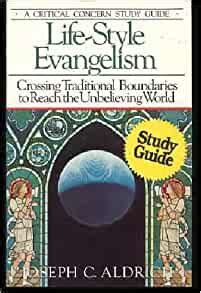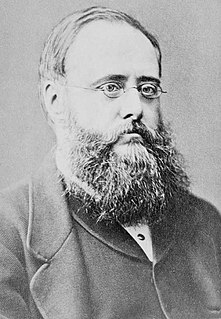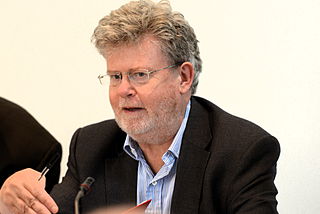A Quote by C. S. Lewis
What we want is not more little books about Christianity, but more little books by Christians on other subjects--with their Christianity latent.
Quote Topics
Related Quotes
The best argument for Christianity is Christians: their joy, their certainty, their completeness. But the strongest argument against Christianity is also Christians-when they are somber and joyless, when they are self-righteous and smug in complacent consecration, when they are narrow and repressive, then Christianity dies a thousand deaths.
Wondering whether Christianity is real is not the same as wondering whether Christianity is true. If you question the truth of Christianity, you can do something tangible about it. You can read books, take a class, or talk to someone about it. But what can you do when you're already convinced it's true but don't experience it as real?
Christianity is not about building an absolutely secure little niche in the world where you can live with your perfect little wife and your perfect little children in your beautiful little house where you have no gays or minority groups anywhere near you. Christianity is about learning to love like Jesus loved and Jesus loved the poor and Jesus loved the broken.
I have noticed that the Christianity of a certain class of respectable people begins when they open their prayer-books at eleven o'clock on Sunday morning, and ends when they shut them up again at one o'clock on Sunday afternoon. Nothing so astonishes and insults Christians of this sort as reminding them of their Christianity on a week-day.
The rest, with very little exaggeration, was books. Meant-to-be-picked-up books. Permanently-left-behind books. Uncertain-what-to-do-with books. But books, books. Tall cases lined three walls of the room, filled to and beyond capacity. The overflow had been piled in stacks on the floor. There was little space left for walking, and none whatever for pacing.
The trouble today is that many Christians live in a kind of bubble of assumptions about what their Christianity means, especially if it places them comfortably among "the good guys," - assumptions that are likely to be drawn as much from folk-Christianity, surrounding political culture, popular pulp-books about the "End Times," or their favourite guru writer or therapist, than from sober and comprehensive reading of the Bible as a whole. Prophets and preachers have the unwelcome task of pricking that bubble with the sharpness of actual texts and teachings of the Bible itself.
No men deserve the title of infidels so little as those to whom it has been usually applied; let any of those who renounce Christianity, write fairly down in a book all the absurdities that they believe instead of it, and they will find that it requires more faith to reject Christianity than to embrace it.
A little more kindness, A little less speed, A little more giving, A little less greed, A little more smile, A little less frown, A little less kicking, A man while he's down, A little more "We", A little less "I", A little more laugh, A little less cry, A little more flowers, On the pathway of life, And fewer on graves, At the end of the strife.
Once one has realized, following the great English literary visionaries William Shakespeare and Thomas Nashe, that sexual puritanism, political disciplinarianism, and abuse of the poor are the result of the refusal of true Christianity ... one is led to articulate a more incarnate, more participatory, more aesthetic, more erotic, more socialized, even a more 'Platonic' Christianity.
The true gospel is radically exclusive. Jesus is not a way; He is the way, and all other ways are no way at all. If Christianity would only move one small step toward a more tolerant ecumenicalism and exchange the definite article the for the indefinite article a, the scandal would be over, and the world and Christianity could become friends. However, whenever this occurs, Christianity ceases to be Christianity, Christ is denied, and the world is without a Savior.
So herein lies the choice for those of us who are Christians. We can either stay within the Christianity we have mastered with the Jesus we have domesticated, or we can leave Christianity as a destination, embrace Christianity as a way of life, and then journey to reality, where God is present and living in every person, every human community, and all creation.
There were honest people long before there were Christians and there are, God be praised, still honest people where there are no Christians. It could therefore easily be possible that people are Christians because true Christianity corresponds to what they would have been even if Christianity did not exist.




































